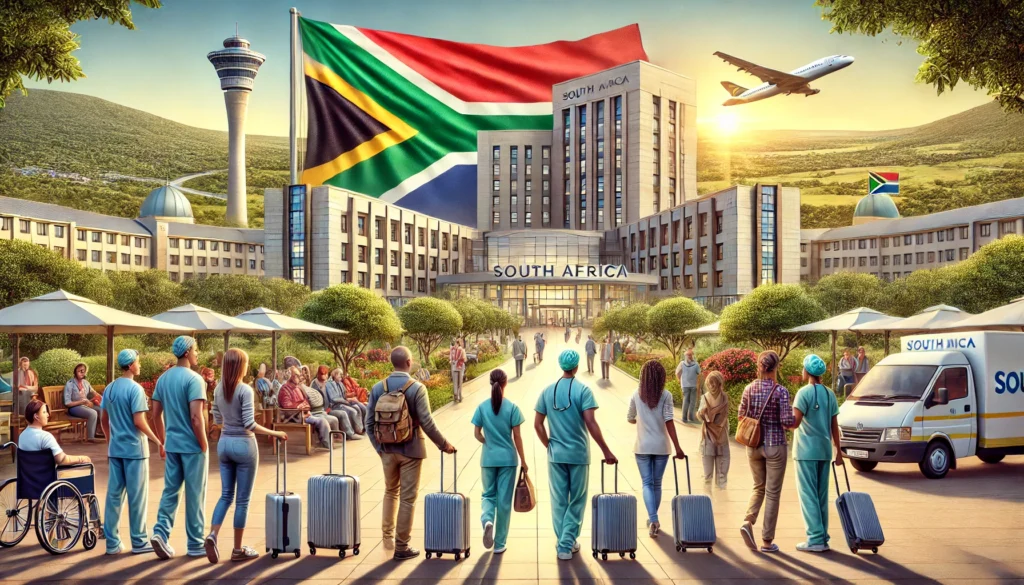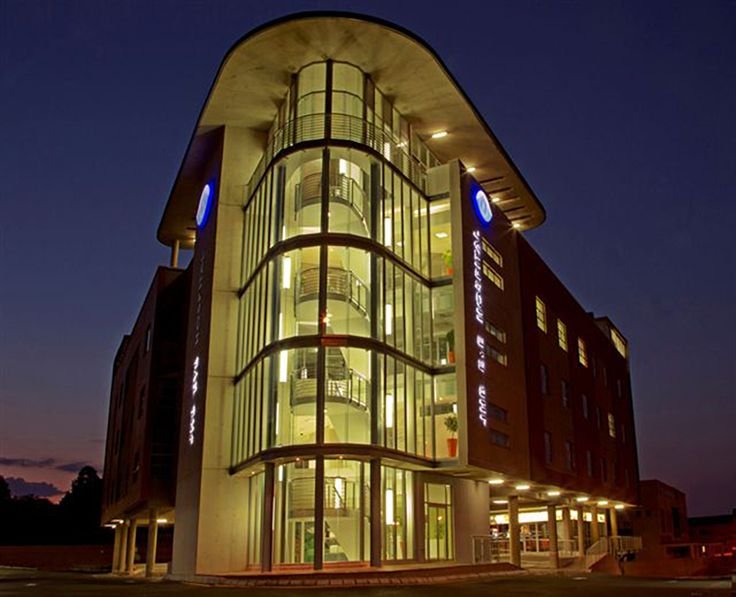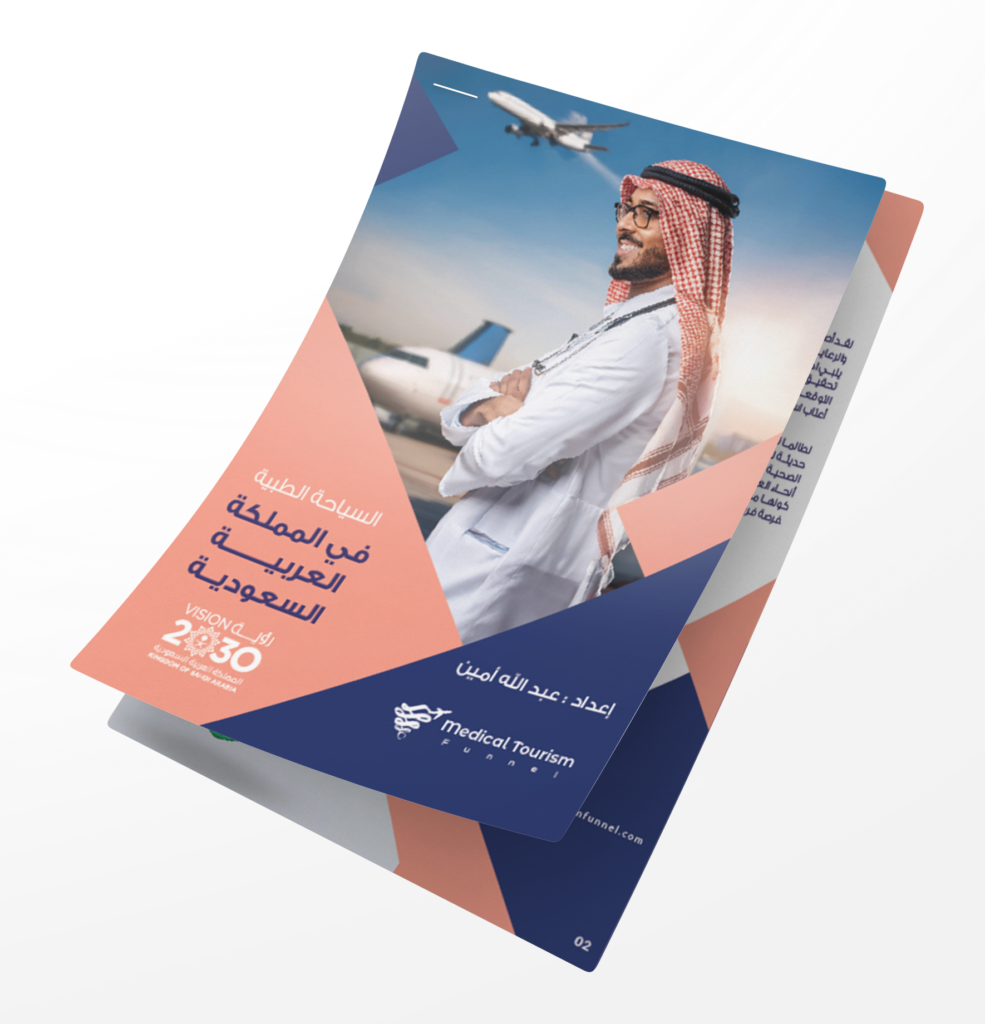Medical Tourism in South Africa

Discover Medical Tourism in South Africa
South Africa has positioned itself as a leading healthcare destination for patients from Africa, Europe, and the Middle East. It attracts a growing number of international medical tourists seeking high-quality, affordable treatments, alongside significant inflows from neighboring Southern African Development Community (SADC) countries.
Market Size & Key Metrics
- Annual Medical Tourists: Over 300,000 in 2023, with a steady annual growth rate of 8%
- Market Revenue: Estimated at $1.2 billion in 2023, projected to reach $2.5 billion by 2030 (CAGR of ~9%).
- Economic Impact: Substantial contribution to GDP, with job creation opportunities in healthcare, hospitality, and ancillary services.
Growth Drivers
- Affordable World-Class Care: Rising demand for cost-effective surgeries and specialist treatments.
- Government Initiatives: Investment in healthcare infrastructure and advanced medical equipment.
- International Standards: Strengthened hospital accreditations such as Joint Commission International (JCI) and the Council for Health Service Accreditation of Southern Africa (COHSASA).
Why South Africa for Medical Tourism?
1. Unique Value Proposition
South Africa offers a compelling combination of high-quality healthcare, affordability, and cultural experiences, making it a premier destination for medical tourism.
2. Quality Healthcare at Affordable Prices
Patients benefit from world-class treatments at costs significantly lower than in Western countries. Procedures like cosmetic surgery and joint replacements are 40-60% cheaper, without compromising on quality or safety.
3. Accredited Medical Facilities
South Africa’s private hospitals, including Netcare, Mediclinic, and Life Healthcare, are internationally accredited and equipped with cutting-edge technology. These institutions uphold rigorous global standards, offering specialized services in oncology, cardiology, orthopedics, and more.
4.Proximity and Accessibility
Strategically located, South Africa provides direct flights to and from Europe, the Middle East, and Africa. The country’s favorable visa policies, including medical visa facilitation, streamline the travel process for international patients.
5.Cultural Diversity and Comfort
With English widely spoken and accommodations for multiple languages, including French, Portuguese, and Arabic, South Africa ensures a seamless experience for diverse patient groups. Hospitals also cater to cultural needs, such as providing halal meals and private recovery suites.
6.Integrated Wellness Experiences
South Africa uniquely blends medical tourism with wellness tourism. Patients can recover in luxury retreats, explore safaris, or enjoy holistic therapies in stunning natural settings, creating a holistic healing journey.
7.Government Support and Innovation
The South African government actively supports medical tourism through tax incentives, duty-free imports of medical equipment, and public-private partnerships (PPPs). Investments in telemedicine and AI-driven diagnostics further enhance the country’s healthcare capabilities.
Healthcare Infrastructure & Quality Standards
Accredited Medical Facilities
South Africa boasts a network of accredited hospitals known for their specialized services:
Netcare Group, Life Healthcare, Mediclinic: Leading providers offering centers of excellence in oncology, cardiology, and fertility treatments.
Global Accreditations: Recognition from JCI and COHSASA ensures adherence to international quality standards.
Skilled Medical Professionals
Expertise: Surgeons, doctors, and nurses trained in leading global institutions in the UK, US, and Europe.
Continuous Training: Emphasis on advanced techniques, minimally invasive procedures, and robotics.
Technological Advancements
Cutting-Edge Solutions: AI-driven diagnostics, robotic-assisted surgeries, and telemedicine platforms.
Seamless Care: Digitized patient records and telehealth services enhance pre- and post-operative care.
Key Medical Tourism Services in South Africa
Popular Treatments & Specialties
Cosmetic Surgery: Rhinoplasty, breast augmentation, and dental aesthetics at 30-50% lower costs than in Europe or the US.
Orthopedics: Robotic knee and hip replacements with advanced prosthetics.
Fertility Treatments: High success rates (50-60%) in IVF.
Cardiac & Oncology Care: Renowned for complex cardiac surgeries and oncology protocols.
Wellness & Lifestyle Medicine
Integrated Offerings: Luxury recovery retreats, safari-based health packages, and holistic spa therapies.
Holistic Healing: Combining traditional African therapies with modern medicine.
Hospitals equipped with over 119,000 beds,
50 COHSASA accredited hospitals
Growth annually
Healthcare Investment:
Industry
Spiritual and Religious Visitors annually
Vision 2030: Transforming Healthcare and Medical Tourism In South Africa
Growth Projections
Medical tourism revenue is forecasted to grow at a robust CAGR of 9-10%, anticipated to reach $2.5 billion by 2030. This growth underscores the sector’s resilience and potential as a cornerstone of South Africa’s healthcare economy.
The number of international medical tourists is expected to surpass 500,000 annually by the end of the decade, driven by increasing global awareness of South Africa’s healthcare offerings and strategic marketing efforts.
Technological Integration
The adoption of cutting-edge technologies such as Artificial Intelligence (AI) for diagnostics and patient management is expanding, enabling faster and more accurate healthcare delivery.
Virtual Reality (VR) is revolutionizing rehabilitation programs by enhancing patient engagement and recovery outcomes, while 3D printing is being utilized to create bespoke prosthetics and surgical models.
Telemedicine hubs are scaling rapidly across Africa, providing remote consultations and bridging the accessibility gap for patients in underserved regions.
Sustainable & Inclusive Healthcare
South Africa is making strides in establishing eco-friendly hospitals, leveraging renewable energy and green building certifications to reduce environmental impact.
Inclusive healthcare models prioritize community engagement and equitable access, ensuring local populations benefit from advancements in medical tourism infrastructure.
Ethical sourcing of materials and transparent governance practices are becoming integral to building a sustainable and socially responsible healthcare system.

Government Initiatives & Policy Framework
South Africa’s National Health Vision
Strategic Alignment: The National Development Plan prioritizes healthcare quality and equity, ensuring that healthcare services are accessible and inclusive across the country.
Public-Private Partnerships (PPPs): South Africa has expanded its PPPs to enhance infrastructure development, enabling private sector investment in critical healthcare services and facilities.
Investment Incentives & Regulatory Environment
Tax Incentives: The government offers significant tax benefits to healthcare investors, encouraging both local and international stakeholders.
Duty-Free Imports: Simplified processes for duty-free importation of advanced medical equipment reduce operational costs for healthcare providers.
Special Economic Zones: Emerging medical clusters and designated economic zones attract private investments in specialized healthcare units, fostering innovation and collaboration.
Quality Assurance & Accreditation
Rigorous Compliance Standards: Oversight by the Department of Health, COHSASA, and other regulatory bodies ensures that healthcare facilities meet and exceed international standards.
Patient Safety Initiatives: South Africa has implemented comprehensive safety protocols and regular audits to enhance patient outcomes and trust.
Transparent Reporting Practices: Hospitals and clinics maintain clear reporting mechanisms to ensure accountability and continuous improvement in service delivery.
Summary of the Report: Medical Tourism in South Africa
Healthcare Excellence
South Africa stands out with a network of over 50 internationally accredited hospitals offering exceptional care in specialties like oncology, cardiology, and orthopedics. The country’s medical facilities are equipped with cutting-edge technology, ensuring top-notch patient outcomes.
Unmatched Cost Advantages
South Africa offers savings of up to 60% on major medical procedures compared to Europe and the US. This makes it a cost-effective alternative for international patients without compromising quality and safety.
Governmental Support & Investment
The South African government actively promotes medical tourism with tax incentives, duty-free imports of medical equipment, and public-private partnerships (PPPs). Recent investments have significantly boosted healthcare infrastructure and enhanced investor confidence.
Strategic Geographical Location
Strategically located at the intersection of global trade routes, South Africa is easily accessible via direct flights from major cities in Europe, Africa, and the Middle East. Favorable visa policies and dedicated medical visa facilitation services simplify the travel experience for patients.
Technological Leadership
South Africa is adopting innovative technologies, including AI for diagnostics, robotic-assisted surgeries, and telemedicine platforms. These advancements ensure seamless healthcare delivery and set new benchmarks in patient care.
Integrated Wellness Experiences
Patients can combine world-class medical care with wellness retreats, safaris, and luxury recovery packages. This unique combination makes South Africa a one-of-a-kind destination for holistic healing and recovery.
Sustainable & Inclusive Models
The country is committed to eco-friendly healthcare solutions, with green-certified hospitals and ethical practices. Inclusive healthcare models empower local communities, ensuring equitable access and sustainable development.
Future-Proof Growth
With revenues expected to double by 2030 and the number of medical tourists projected to exceed 500,000 annually, South Africa is on a trajectory to become a global leader in medical tourism. This growth is fueled by innovation, strategic marketing, and government support.
Cultural Diversity & Patient-Centric Care
With multilingual support and culturally sensitive patient care, South Africa ensures a personalized and comfortable experience for diverse international patients. Amenities like halal meals, private recovery suites, and family-friendly policies cater to all needs.
Global Standards
South Africa’s healthcare system boasts over 50 internationally accredited hospitals that deliver specialized and world-class medical services across various disciplines.
Cost Savings
Patients save up to 60% on major procedures compared to Europe and the US, making South Africa a highly competitive destination without compromising on quality or safety.
Governmental Support
The government’s proactive measures, including tax incentives, duty-free medical equipment imports, and robust public-private partnerships (PPPs), drive infrastructure growth and investor confidence.
Strategic Location
Strategically situated, South Africa offers easy access through direct flights to major global hubs, complemented by streamlined medical visa facilitation services that enhance the patient journey.
Future Growth
With revenues projected to double by 2030, driven by cutting-edge technologies, wellness integration, and expanding medical tourism services, South Africa is poised to be a global leader in the sector.
South Africa Market
2024 Statistics
- Population: 64.1 million
- Gross Domestic Product : $403.75 billion, with a per capita GDP of $6,380
- Economic Growth: 1.1%. year-on-year
- Public Debt: 75.8% of GDP
- Vision 2030 Investments: $32 billion
- the dominant contributing sectors to South Africa's GDP: Finance, Real Estate, and Business Services:~24% of GDP
Download The Full Report

Other Countries Reports
Check Our Latest Medical Tourism Trending Report by countries :
FAQ
The South African government provides a range of incentives to attract both small and large investors into the healthcare sector:
Tax Benefits: Substantial reductions in corporate tax rates for healthcare projects.
Duty-Free Equipment Imports: Streamlined processes allow healthcare providers to import state-of-the-art medical equipment without incurring duties, reducing operational costs.
Public-Private Partnerships (PPPs): The government fosters collaboration with private investors to develop medical infrastructure, ensuring long-term returns and shared risk.
Regulatory Ease: Simplified licensing and operational procedures make market entry efficient for foreign investors.
South Africa excels in offering a variety of high-demand specialties:
Cosmetic Surgery: Procedures like rhinoplasty, facelifts, and breast augmentation are popular due to their affordability and quality.
Orthopedics: Cutting-edge treatments including robotic knee and hip replacements draw patients from around the globe.
Fertility Treatments: With success rates comparable to global benchmarks (50-60%), South Africa’s IVF clinics attract international couples.
Cardiology and Oncology: Specialized centers offer complex cardiac surgeries and advanced cancer treatments at world-class standards
Investing in South Africa’s medical tourism sector offers promising returns:
High Growth Potential: The market is growing at a CAGR of 9-10%, projected to double revenues by 2030.
Short Payback Periods: Investors typically see returns within 3-5 years due to the sector’s rapid expansion and demand for services.
Case Studies: Success stories highlight profitable ventures, such as specialized fertility clinics and orthopedic centers achieving double-digit annual growth.
Medical Tourism Funnel provides comprehensive support for investors entering the South African market:
Consultation Services: Tailored advice on navigating local regulations, identifying lucrative opportunities, and forming strategic partnerships.
Market Research: In-depth analysis of patient demographics, demand trends, and competitive landscapes to inform decision-making.
Local Partnerships: Assistance in establishing relationships with accredited hospitals, clinics, and government entities to streamline operations.
Marketing Strategies: Expert guidance in building global awareness and attracting international patients through targeted campaigns.
